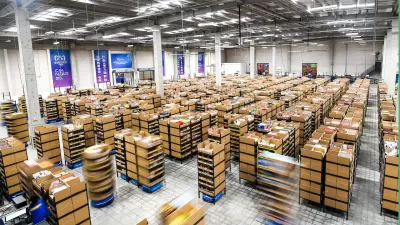Plastic packaging has been associated with numerous environmental drawbacks, including pollution, non-biodegradability, and harm to wildlife. The overreliance on plastic packaging has led to significant waste accumulation in landfills and oceans, posing a severe threat to ecosystems worldwide. In contrast, paper packaging offers a more sustainable and eco-friendly alternative. Paper is biodegradable, renewable, and recyclable, making it a preferred choice for environmentally conscious consumers and businesses. Paper packaging helps reduce the carbon footprint and minimizes environmental impact compared to plastic. Additionally, advancements in paper technology have led to the development of innovative and sturdy paper packaging solutions that can rival the durability of plastic. The future of paper packaging looks promising, with increasing emphasis on sustainability and circular economy practices. Companies are investing in research and development to enhance the strength, moisture resistance, and design versatility of paper packaging. Moreover, consumer preferences are shifting towards eco-friendly options, driving the demand for paper packaging solutions. As regulations tighten around plastic usage and waste management, the paper packaging industry is poised for significant growth and innovation. With ongoing efforts to improve sustainability, enhance functionality, and expand applications, paper packaging is well-positioned to dominate the packaging market in the future, offering a greener and more responsible choice for packaging needs.
Paper based buffer packaging to replace plastic packaging is the future development direction
Summary
Plastic packaging has been associated with numerous environmental drawbacks, including pollution, non-biodegradability, and harm to wildlife. The overreliance on plastic packaging has led to significa...
Apr 09,2024, 16:10:51 Industry information
latest updates
In today's fast-paced logistics industry, buffering packaging has become an essential component in ensuring the safe and efficient transportation of goods. Among various types of buffering materia...
 VIEW MORE
VIEW MORE
we are proud to be a leading manufacturer of buffering packaging equipment, with products sold globally. Our state-of-the-art factory is the backbone of our operations, and it's where we produce h...
 VIEW MORE
VIEW MORE
When selecting cushion packaging for the e-commerce industry and industrial sectors, paper-based packaging is indeed an environmentally friendly and practical choice. Here are several recommended pape...
 VIEW MORE
VIEW MORE
From an environmental perspective, paper-based cushion packaging is more environmentally friendly compared to plastic-based cushion packagingPaper-based cushion packaging, such as kraft paper cushion ...
 VIEW MORE
VIEW MORE
Tags:
Paper based buffer packaging to replace plastic packaging is the future development directionKeywords:
circular economy practices environmentally conscious consumers eco-friendly options eco-friendly alternative paper packaging solutions paper packaging industry paper packaging offers significant waste accumulation paper packaging
Packaging Equipment
Automatic Processing Kraft Cushion Packaging Honeycomb Paper Roll Making Machine
Paper Bubble Machine System YP 300 Pro
Paper Bubble Machine System YP 500 Pro
Paperboard Expander Cutter PQ 320
Packaging Materials
Honeycomb sleeves
Honeycomb paper envelope bags
Honeycomb paper
Foldable Integrated Cushioning Paper
Wet strength kraft paper tape
About bailu



